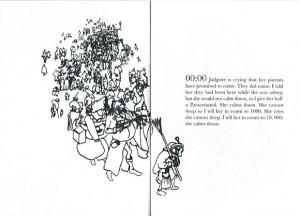On Why the Death of Stuart Hall Is a Loss for our Academy Programs
Stuart Hall, the renowned British cultural theorist and sociologist, passed away exactly one month ago, on 10 February 2014. His death prompted in us a deep sense of personal loss. His groundbreaking writings on cultural studies, in particular on racial inequality, were first translated into German in the mid 1990s—a time when people here were beginning to acknowledge the importance of racism as an issue.

Silent vigil of the Jewish Community at the Putlitz Bridge Deportation Memorial
Photo: Michael Kerstgens, Berlin Tiergarten, 1992
Hall’s approach incited a new discussion and coined a new vocabulary: until then, Germans in the Federal Republic had spoken of “Fremdenfeindlichkeit” (xenophobia), which they regarded as a marginal social phenomenon. Politicians and the media spoke matter-of-factly of society “reaching breaking point” when “the boat gets too full” owing to “Überfremdung.” The latter term denotes the state of ‘being overrun by foreigners.’ It is itself deeply racist and was accordingly voted Non-word of the Year 1993. “Being overrun” was presumed however to be explanation enough for the fire-bombings and other attacks then being carried out almost daily on asylum-seekers’ accommodation centers or immigrants’ apartments—and likewise for the hate campaigns, man-hunts, and pogrom-type riots erupting in Rostock, Hoyerswerda, and elsewhere, or the emergence of no-go areas in other towns and rural centers. In consequence, the law on asylum was altered in 1993 such that judicial opinion held it to have been “de facto repealed.” Therefore, anyone who wished to address the issue of racism as a structural phenomenon and thereby draw on theoretically sound academic sources had necessarily to turn to authors from England, France, the USA, or Canada—and repeatedly to Stuart Hall. → continue reading

